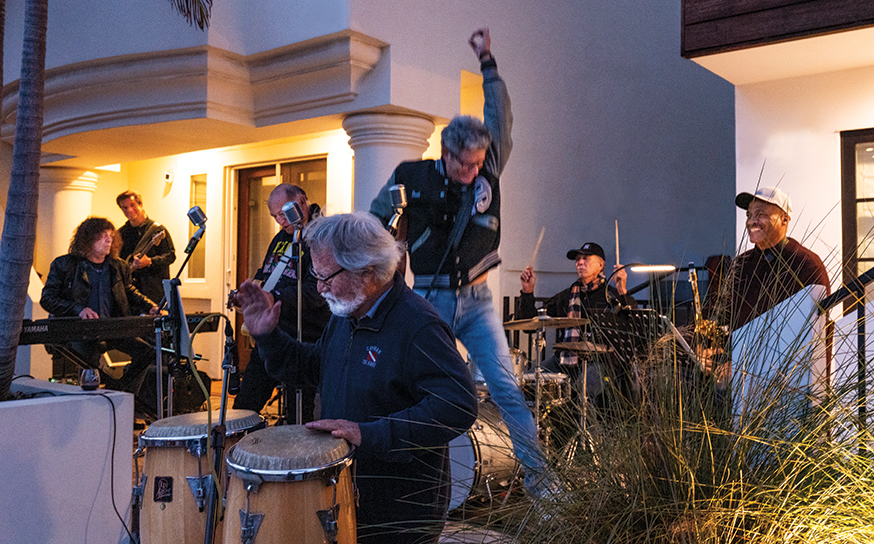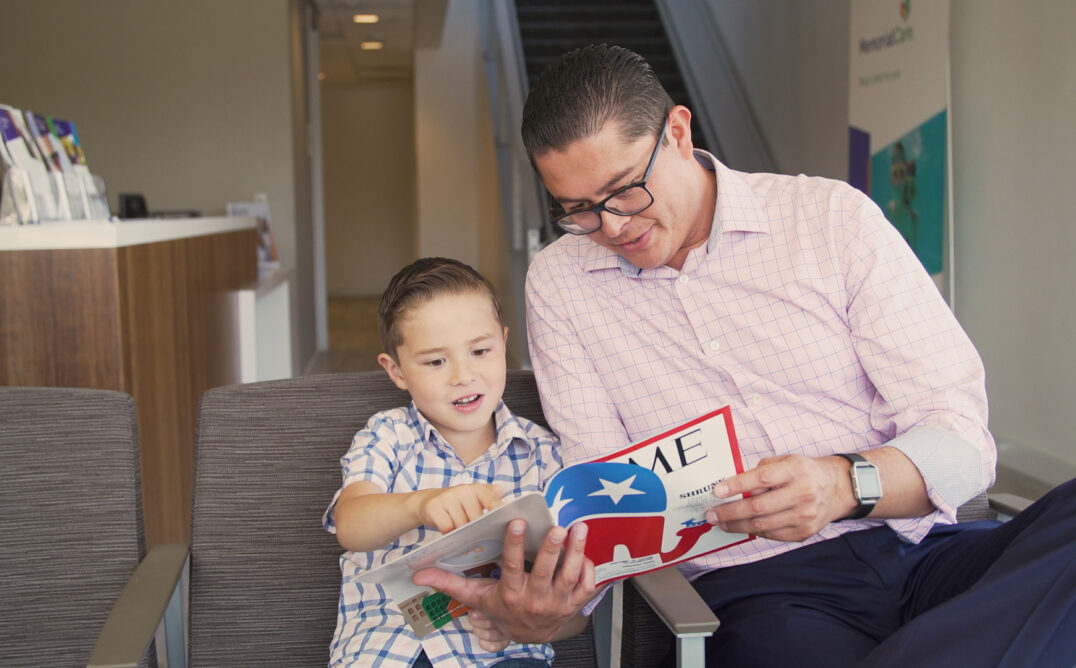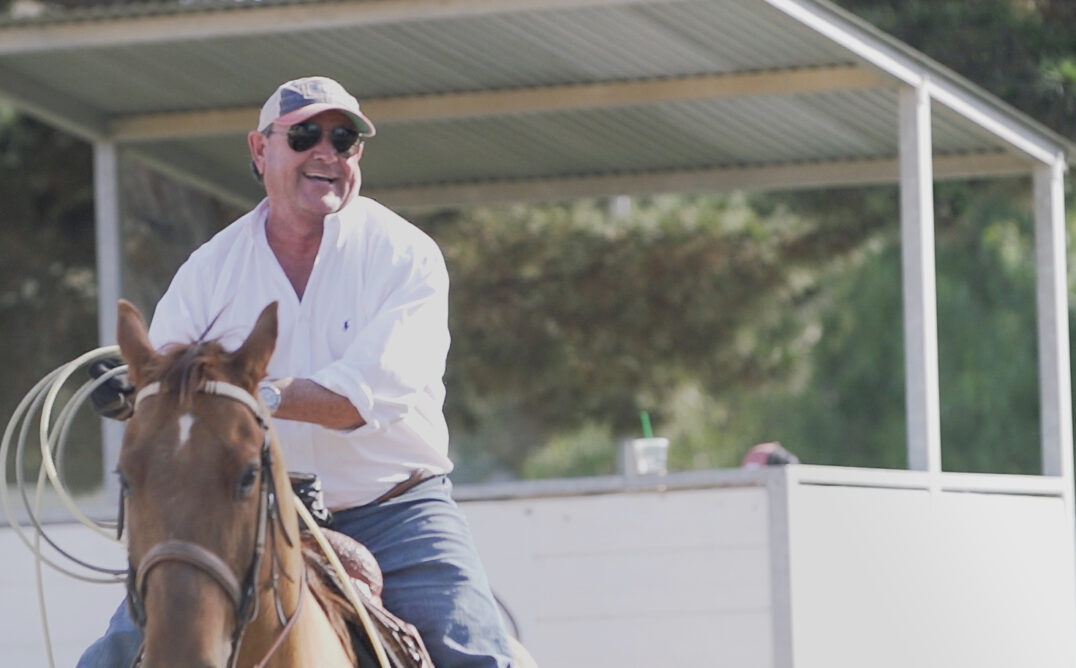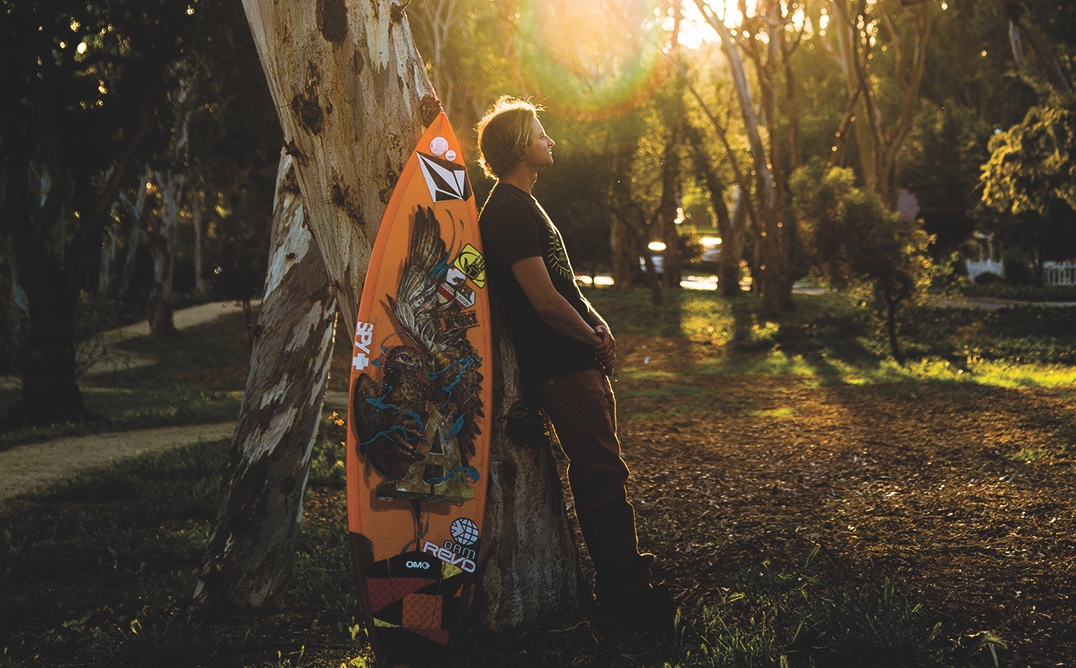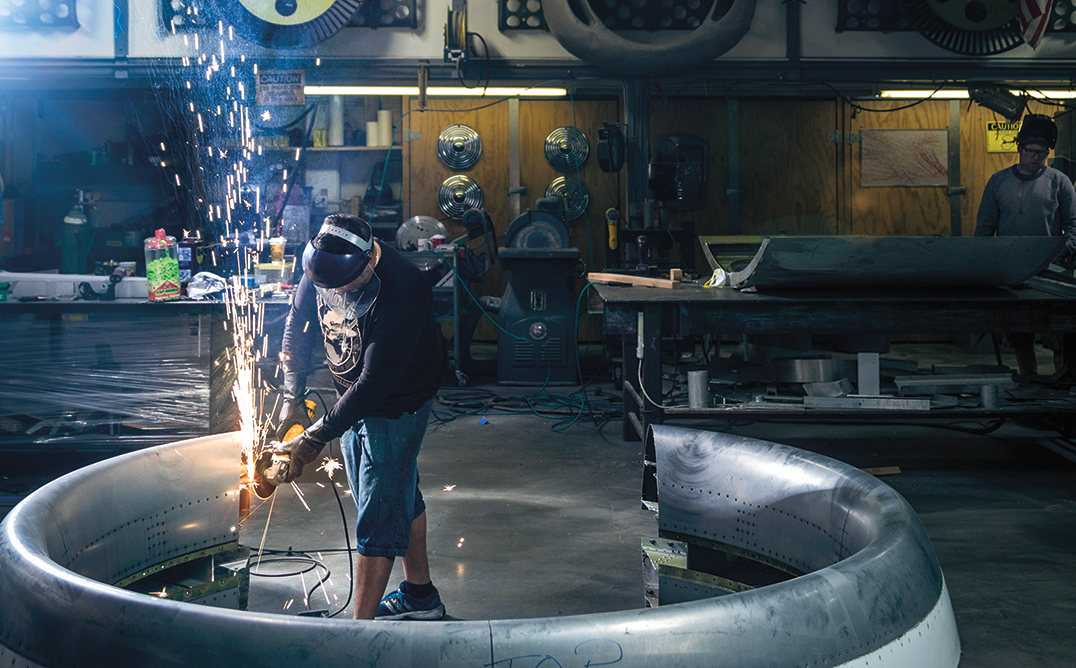
Film and Television Director Vickie Bronaugh Watches Proudly as Daughter Mary Gets Her Start in the Business
Like mother, like daughter.
 It’s dawn. Vickie Bronaugh stands on the set of Power Rangers, watching the monitor as her actors dash across the Hollywood Hills on dirt bikes. Dust swirls around her feet as the bikes zoom over the edge of a cliff. “Cut!” yells Vickie. She looks down and gasps when she sees the image on the monitor—the Hollywood sign, illuminated by the golden sun.
It’s dawn. Vickie Bronaugh stands on the set of Power Rangers, watching the monitor as her actors dash across the Hollywood Hills on dirt bikes. Dust swirls around her feet as the bikes zoom over the edge of a cliff. “Cut!” yells Vickie. She looks down and gasps when she sees the image on the monitor—the Hollywood sign, illuminated by the golden sun.
She thinks: Dreams do come true!
Little does she know that as her time with Power Rangers comes to a close, a baby girl with a mind full of stories opens her eyes in China. A girl named Mary.
Vickie is a Texas-born firework with auburn hair and a southern twang. Mary is a go-getter raised in the South Bay, sporting winged eyeliner and a bright smile. This mother-daughter pair are best friends, and both work in the film and television industry.
Vickie considers herself more naturally a director, while Mary considers herself more naturally a writer—though both will do either job because they like carrying out their creative endeavors from start to finish. “We’re the same person,” Vickie says. “We can never find our phones,” Mary chimes in.
Vickie landed her big break in the industry when she met the creator of the hit kids show Power Rangers in New York City. “As a good wanna-be director always does, I was prepared,” she jokes. He asked if she had a reel, and out of her backpack she pulled a VHS tape. He, in turn, proceeded to pull out a portable VHS player.
“He said ‘If you are ever in L.A., give me a call,’” she says. “I was there the next day!”
She was the first woman to direct multiple episodes for the series. Then one day, due to changes with the production, it stopped. “I was working, and then all of the sudden I ran into a brick wall,” Vickie recalls.
However, as one chapter of her life came to a close, a new one—the best one—began to open. Vickie always wanted to adopt, but her career ambitions had gotten in the way. “God pretty much has to shut me down for me to do the next best thing,” she says.
“The reward is in those little moments where you are enjoying the work.”
Vickie and her husband, Charlie, traveled from Redondo Beach to China to adopt Mary, returning to China two years later to bring home baby sister Ruby.
Mere months after Mary came home, her mother took her to Hermosa Beach to play on the swings. “It was the first time in my entire life I felt 100% peace,” Vickie says. “I didn’t feel driven or like I had to be somewhere … this was all I wanted. Anything after was icing on the cake.”
Fortunately for Vickie, there was some pretty amazing icing on the horizon.
Moonrise, Vickie’s feature film, tells the story of a widowed father’s journey to find wholeness again. Having just lost her mother, Vickie and her sister were trying to urge their grieving dad off the porch to go inside and celebrate Christmas. Then he looked up into the night sky and saw the supermoon.
“Dad realized the moon rises, the sun sets, tomorrow’s another day,” Vickie says.“Every story I write is about one incident.” In a serendipitous moment, Granger Smith, the lead in Moonrise, was watching the same supermoon on his mother’s ranch just a few miles away from Vickie.
“It was like heaven,” Vickie recalls about directing the film, which is set for release this December by Sony Pictures. “That’s the feeling I’m always chasing when I’m writing,” Mary agrees.
When asked what attracted her to the film world, Mary jokingly gestures to her mom. “It was always part of the conversation,” she says.
Mary attended the highly competitive screenwriting program at USC. As a freshman, she wrote and directed her own web series, Ensemble—a comedy/drama centered around college theatre kid antics. “I wanted to shoot the things I was writing,” she says, even though that wasn’t part of the curriculum.
Over the next two years the Ensemble team, led by Mary, grew to 300 students and produced six half-hour episodes. The ability to teach people was the most fulfilling part of the experience. “I think that’s an important skill on a team. To be able to say, as a leader, ‘How can I help you be your best?’ Not ‘How can you do your best for me?’”
Hired one month before graduating from college, Mary became an apprentice writer on the Disney Channel show Big City Greens. Shortly after, she was promoted to full-time staff writer, making her the youngest writer at Disney. She wrote five episodes across two seasons.
Mary’s process is somewhat different than her mother’s. Rather than drawing from real life and what she already knows, she finds inspiration in what she doesn’t know. “I usually have some kind of question I’m wrestling with,” she says. “My best work always comes from a burning-inside-me need to understand something.”
This process informed the creation of her short film Swearing. Like her mom, Mary adores the experience of being on set. “The reward is in those little moments where you are enjoying the work,” she says. Vickie leans over and whispers, “She’s got a good eye. She’s such a good director.”
However, being in the film industry is not easy for women, especially—in Mary’s case—for a woman of color. Vickie finds power in rising above comments and focusing on the work. “No matter what I heard or what came at me,” she says, “all I could think was, ‘I’m the director. I got the job. I’m here, and you’re not.’”
Mary’s struggles inform how she will lead writers’ rooms in the future. “I want people to know their voice matters and we want to hear from them, even if it’s hard and uncomfortable for us.” In fact, giving a voice to those who are often ignored is part of the reason Mary and Vickie love their jobs so much—whether it’s a grieving country singer or a little boy trying to find his place in the big city.
“A large role narrative plays is helping us understand the messiness and chaos of being a human being,” Mary says. Vickie adds, “Being a human is difficult, and life is difficult. If you can tell one story of how a character gets through something and makes it to the other side and you can impact one person in the audience, they can walk out changed.”
It’s dusk. Vickie Bronaugh sits in a theatre crowded with people engrossed in the short film playing. She glances over in the dark at her daughter, fully grown, and watches the light from the screen dance across her face. So much anticipation builds up to this night, and it’s all for the moment the credits roll: Written and directed by Mary Bronaugh.
Vickie smiles to herself and thinks: Dreams do come true!








